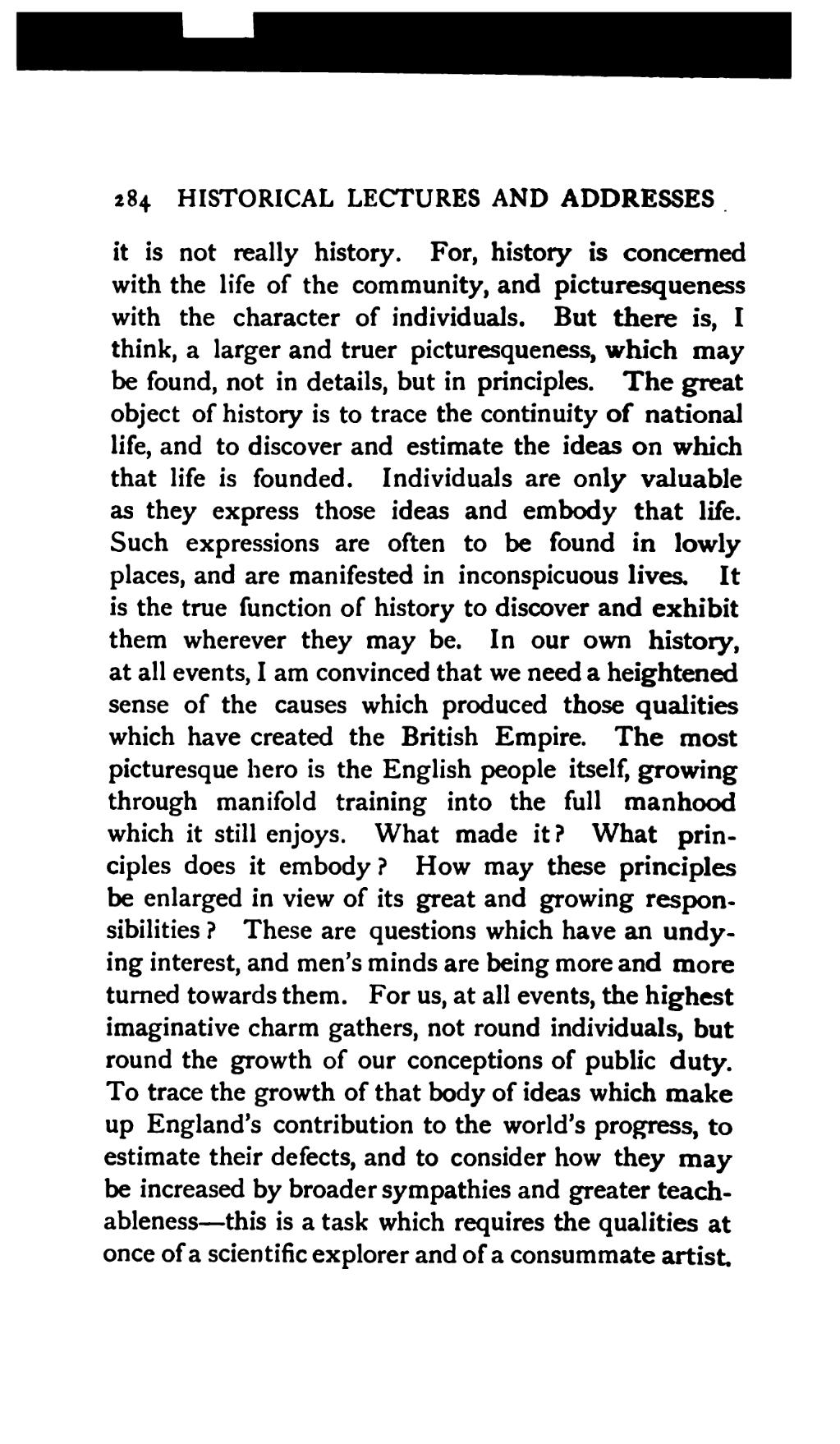it is not really history. For, history is concerned with the life of the community, and picturesqueness with the character of individuals. But there is, I think, a larger and truer picturesqueness, which may be found, not in details, but in principles. The great object of history is to trace the continuity of national life, and to discover and estimate the ideas on which that life is founded. Individuals are only valuable as they express those ideas and embody that life. Such expressions are often to be found in lowly places, and are manifested in inconspicuous lives. It is the true function of history to discover and exhibit them wherever they may be. In our own history, at all events, I am convinced that we need a heightened sense of the causes which produced those qualities which have created the British Empire. The most picturesque hero is the English people itself, growing through manifold training into the full manhood which it still enjoys. What made it? What principles does it embody? How may these principles be enlarged in view of its great and growing responsibilities? These are questions which have an undying interest, and men's minds are being more and more turned towards them. For us, at all events, the highest imaginative charm gathers, not round individuals, but round the growth of our conceptions of public duty. To trace the growth of that body of ideas which make up England's contribution to the world's progress, to estimate their defects, and to consider how they may be increased by broader sympathies and greater teachableness—this is a task which requires the qualities at once of a scientific explorer and of a consummate artist.
